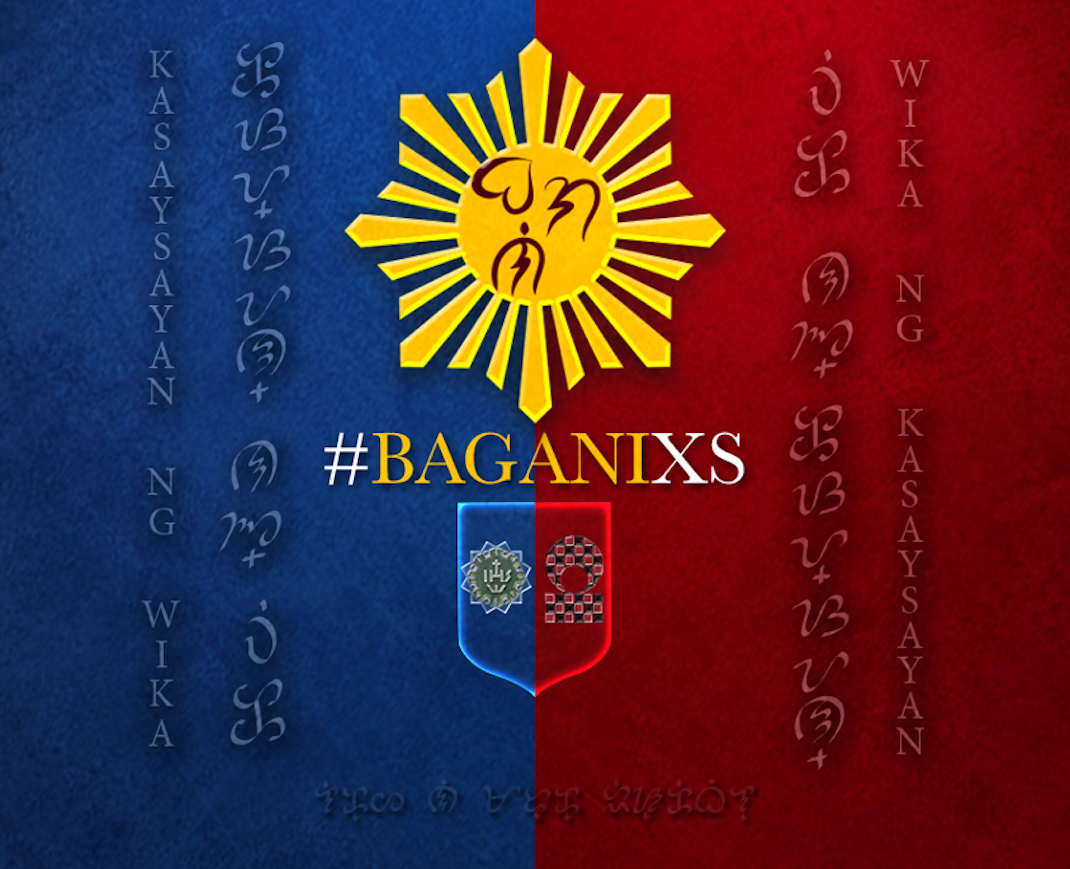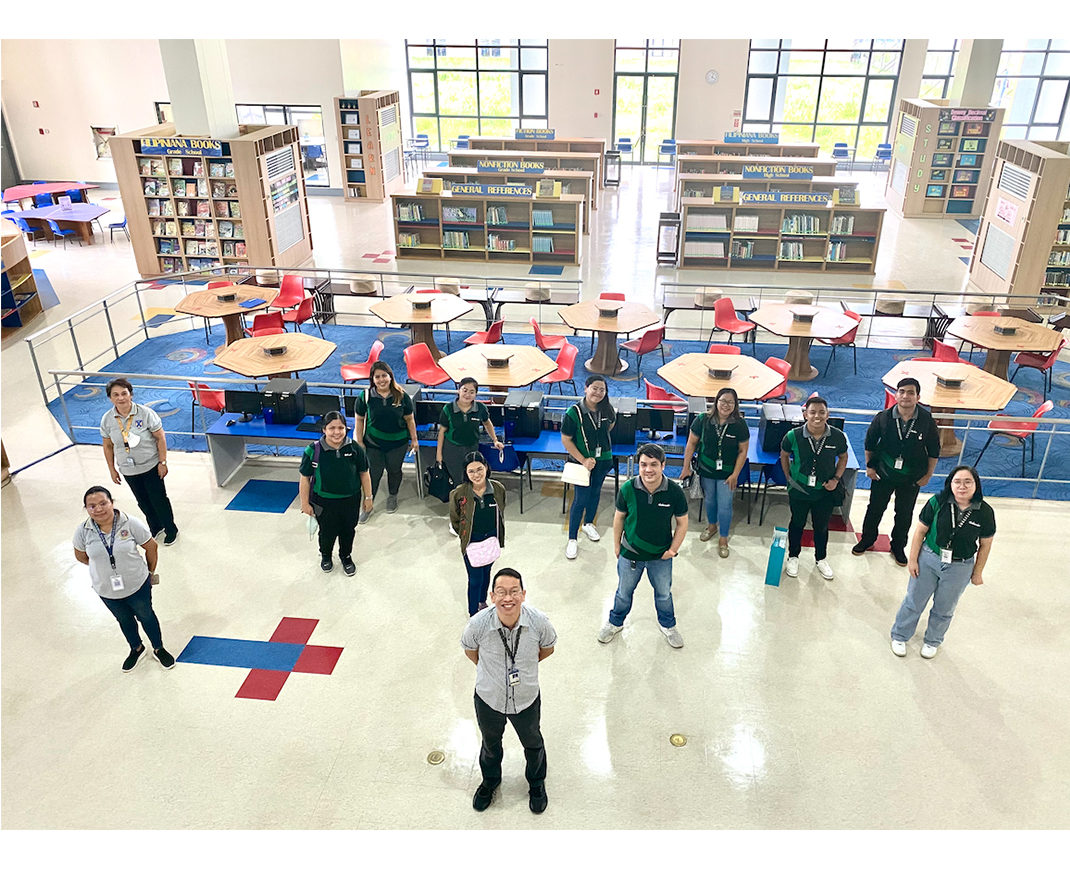 Xavier School Nuvali
Xavier School Nuvali - About Us
- Admissions
- Kindergarten
- Grade School
- Junior High School
- Senior High School
- Download School Fees
- Financial Aid
- Campus Life
- Circulars
- Give
- Careers
Through the Lens of an Expert: Inspiring the Next Generation of DRRM Learners
For a subject like Disaster Readiness and Risk Reduction or DRRR, reflecting on firsthand experiences is essential. With the aid of online tools like maps and databases, coupled with the number of resources available at the tip of our fingertips, best efforts have been made to create an immersive learning environment favorable for studying DRRM. However, the limitations of online learning remain a challenge to be conquered.
To this end, an online DRRM talk was held last September 29 with Ms. Ma. Criselda Baldago, University Research Associate of the University of the Philippines - National Institute of Geological Sciences and co-author of the book ‘A Timeline of Mindanao Disasters’. The talk, attended by Grade 11 STEM students, highlighted her experience in disaster research and insights on the multidisciplinarity of Disaster Risk Reduction and Management (DRRM). Drawing from lessons learned in recent disaster events in the Philippines, including the eruption of Taal Volcano in January 2020, Ms. Baldago underscored the importance of open data, together with innovation and technology. Moreover, she elaborated how other disciplines, such as the social sciences, may help in taking into account the different cultural backgrounds and beliefs that each community has, resulting in a more effective execution of DRRM plans.
Start Small and Grow Big
Ms. Baldago’s talk was not just for academics. It helped us realize the crucial role of DRRM in our lives. “Education without application is just entertainment,” as the award winning author Tim Sanders said. This calls for our next big step as Xaverians: to begin with ourselves and with our own households. Now that we are more aware and knowledgeable, it is our turn to share this awareness with our family as DRRR students. By recognizing, practicing, and acknowledging the need for DRRM, we aim to achieve a safer and more resilient Philippines.
Through our collective efforts and acknowledgement that we are in a disaster-prone country, the risks and our vulnerabilities will be reduced. Beginning with ourselves, with our family, and slowly extending to our communities, we will be able to achieve a safer Philippines. Practicing protocols, being extra cautious, and doing the necessary safety measures would not cost us much. Resiliency alone wouldn’t be enough, if not with adequate DRRM practices and our genuine sense of bayanihan. Let us all start small and grow big.
DRRM as an Agenda for Interpersonal Development
Indeed, we are faced with ever-changing challenges. As Grade 11 STEM students, we will soon have to make those difficult choices in our prospect college programs and career paths. Ms. Baldago’s talk presented DRRM as a multidisciplinary field which may offer possibilities regardless of your interests.
DRRM requires discipline and skill, not only in the natural sciences but also in communication and governance. This gives us the opportunity to serve while pursuing our passions. Taking that first step forward is not always easy yet learning about DRRM is already a great start in this journey. It gives us the opportunity to relate our personal experiences and communicate them with the other members of our communities in a variety of forms. We need not be limited to one field just to be able to achieve our DRRM goals. In fact, we can approach it from different perspectives and take that step in making our own contributions.
DRRM is Nothing Without Effective Leadership
While all efforts toward disaster resiliency and preparedness are highly appreciated and well-thought-of, these efforts may go to waste should they be poorly coordinated. In light of this, it is important to highlight an aspect crucial to the success of DRRM — leadership. Effective leadership, coupled with thorough contingency planning and coordination, is key in the implementation of DRRM across all levels. From the discussion of Ms. Baldago, many of their disaster relief efforts were aligned with the concerned agencies, with prior and hands-on knowledge of their constituencies. A prime example of this was the experience of Ms. Baldago’s team in Mindanao when they warned locals of an anticipated movement of land in an area of higher elevation, as predicted by indicators detected by instruments. The community was initially apprehensive of this advice. Eventually, with the cooperation of local law enforcement, disaster relief agencies, and the support of their local leader, the community listened and understood the necessity of the advice that was given. Truly, with trusted and skilled members of society paving the way for coordinated efforts, disaster resiliency in an already heavily disaster-stricken country may be within sight.
In light of the upcoming elections, another important step we should all take with regards to DRRM efforts is to choose leaders who are skillful in DRRM, if not at least aware of its importance. It is evident both in the study materials given in class and in Ms. Baldago’s talk that a clear understanding of DRRM through thorough planning and efficient leadership is crucial to achieving the goal of disaster preparedness and resiliency. Clearly, that cannot be achieved by individuals acting just on their own but requires a collective effort to choose leaders who are capable of leading the people out of disasters and even preventing them like the current pandemic.
As Grade 11 DRRM students, we are grateful for the insights gained from Ms. Baldago’s discussion. In light of the heightening climate crisis and the ongoing pandemic, we recognize the efforts in mitigating the said risks. It is inspiring to see all the efforts to boost DRRM education, especially for the youth, in order to reinforce the foundations needed to build a much more resilient Philippines. This calls us to work together in achieving a data-driven, DRRM-comprehensive future.
Article by: Kyle Yuan M. Cancino, Noel Stephen M. Dequito, and Isabella Maria M. Magtibay
XSN Sparkle - August 2022

Hindi napigilan ng pandemya ang pagdiriwang ng Buwan ng Wika 2020 sa Paaralang Xavier Nuvali. Ngayong taon, kasabay ng pagbibigay pugay sa ating Wika, binibigyang pugay din ang mga bayaning nagbubuwis ng kanilang buhay upang mapanatili ang kaligtasan ng ating bayan.

XSN Librarians Share Best Practices